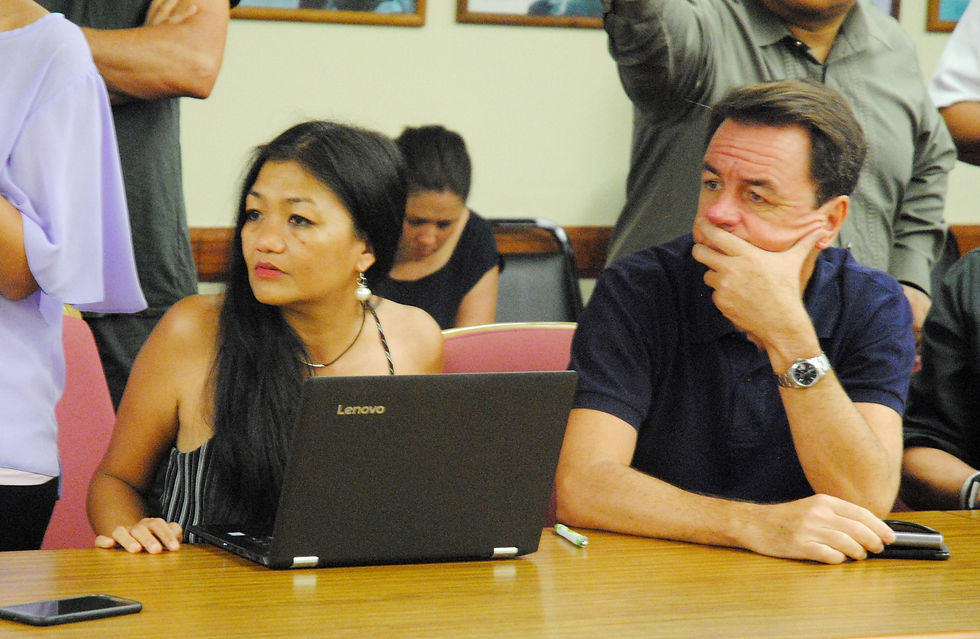

Since the first round of verbal jousting between President Donald Trump and North Korean leader Kim Jong-un, international media have been arriving on Guam, along with regularly scheduled tourist visitors, hoping to assess the situation for their viewers, listeners and readers back home, wherever that might be.
At what is now a regularly scheduled briefing at the Guam Governor's office, Governor Eddie Baza Calvo and a variety of staffers were questioned about the latest developments.

Among the new arrivals was Antonia Yamin of the Israeli Broadcasting Corporation (KAN), only a few hours off a flight that originated in Germany. The similarities between the small country of Israel which is accustomed to occasional rocket attacks and the small island of Guam clearly registered with Governor Calvo.
Yamin: You say that Guam is safe, but were there specific measures taken into account if Guam does suffer from a nuclear attack?
Calvo: Oh, by the way, the catastrophe of a nuclear attack would not just be in the Marianas. Remember, Guam is subject to an intermediate missile threat. You have our friends and neighbors in Seoul that are in the range of artillery. You’ve got our friends in Japan who are in the range of short range missiles. And of course, North Korea is looking toward ICBMs, where a great deal of the United States would also potentially be a target. We do believe and I’ve got a caveat—you’re from Israel?
Yamin: Yes, we suffer from a lot of attacks.
Calvo: If you look at the buildings (here) I gotta tell you something. If you look at the buildings here, because we’ve had Typhoon Category 5 in terms of strength here, we’ve got the toughest building standards in the United States. But we’ve also had a lot of practices because of supertyphoons and near misses. So I would say that for decades we’ve had a very mature civil defense system here. With 9/11, with the creation of Homeland Security, you’ve seen even stronger dialogue on emergency preparedness between the civil government headed by a governor and Joint Region Marianas, the military command headed by the rear admiral and in 2013 with the first of many threats made by Kim Jong-un on Guam, there have even been increased measures in terms of preparedness, in terms of coordination, cooperation with the local government and the military in terms of pre-event and post-event. So like Israel, we’ve had practice here. Most of it has been made by nature and of course now, some of the threats have been made by a gentleman from North Korea. But we are as prepared as any American community can be for a potential crisis. If that were to occur, you’re seeing not only catastrophe to be honest. You’re not only seeing catastrophe in the Korean peninsula, catastrophe in Japan, but catastrophe in the world. So let’s hope and pray that we are not put in that position.

PIT's Mar-Vic Cagurangan and and John Irvine, a reporter from ITV (Britain)


